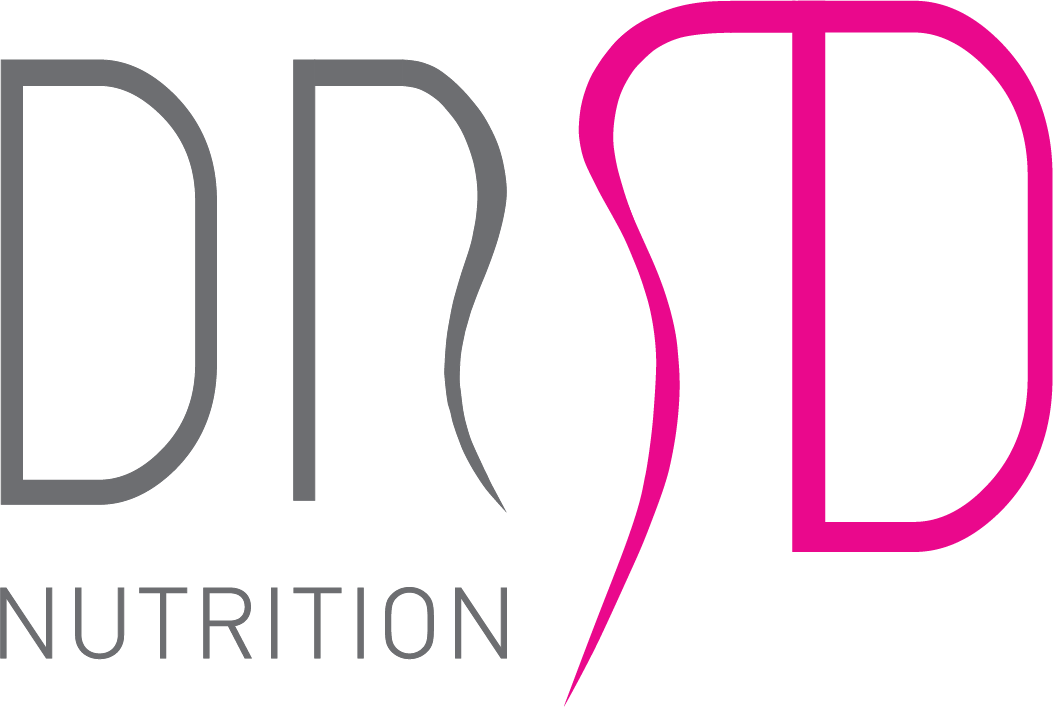All woman are bound to live through menopause between the age of 45 to 55 as part of the natural aging processes. Unfortunately, this stage of a women’s life is often associated with unpleasant symptoms, such as: hot flashes, weight gain, sleep difficulties and fatigue. This said, our diet and lifestyle can help manage some of these symptoms.
Menopause starts when the menstruation cycle is interrupted for at least 12 consecutive months. Which is due to a decrease in the ovarian hormones production: estrogen and progesterone. Symptoms may appear during perimenopause and continue during menopause, these could last between 1 to 5 year.
Women's experience of the menopause may vary; 20% of women will have no symptoms, while 20% can experience all the symptoms below:
- Hot flashes
- Sleep problems
- Weight gain
- Change in hair and skin texture
- Vaginal dryness
- Mood swings and irritability
- Feeling of loss
Some hormonal replacement therapies are available to reduce those symptoms, but most of them have medical contraindication: your family doctor can determine if it’s adapted to your needs and health condition. Diet and lifestyle habits can also play a role in reducing some symptoms and risks related to menopause.

Menopause and heart health
Women living with menopause are at a higher risk of cardiovascular diseases due to hormonal changes, it is therefore even more important to follow heart healthy guidelines. Some of those recommendations are:
- Limit saturated and trans fat;
- Choose healthy fats, such as: olive oil, fish, nuts and seeds, avocados;
- Limit simple and added sugars;
- Increase fiber-rich foods;
- Choose whole, non-processed foods
- Include a variety of fruits and vegetables in your diet
Omega-3 fatty acids, commonly found in fatty fish, walnuts, chia and flaxseeds, have a protective effect on cardiovascular health. These healthy fats could also reduce some unpleasant symptoms of menopause.
Menopause and bone health
Moreover, during that stage of life, women should pay attention to their bone health to prevent osteoporosis. Several factors contribute to the increased risk for osteoporosis and fractures at this stage: loss of ovarian function, hormonal changes and decreased level of physical activity. It is crucial to meet your needs in vitamin D and calcium to maintain your bone health. It is recommended to take a vitamin D supplement at the age of 50 and older, which correlates with the start of menopause. Depending on your diet and medical history you may need to add a calcium supplement.
Here are some food sources of calcium and vitamin D to help meet your needs:
- Calcium sources:
- Milk products (milk, yogurt, cheese, kefir)
- Fortified milk substitutes (soy, almond)
- Fortified juices (like some orange juices)
- Canned fish with bones
- Vitamin D sources:
- Milk
- Fortified milk substitutes (soy, almond)
- Fortified juices (like some orange juices)
- Fatty fish: salmon, trout, sardines
Menopause and weight gain
Many women are concerned with the weight gain associated with menopause. On average, women will gain 1,5 pound per year in their fifties and sixties, independently of their initial weight and their ethnicity. Research have demonstrated that this weight gain can be partly due to hormonal changes, but also related to other factors, such as:
- Decreased basal metabolic rate with age
- Reduced level of physical activity
- Changes in the lifestyle
It is therefore possible to slow down the weight gain or to stabilize it if we make some changes to our eating habits and activity. On that note, we advise against restrictive diets since they reduce the basal metabolic rate, which could lead to further weight gain.
Better managing the symptoms with diet and lifestyle
Some foods and lifestyle habits can contribute to an increase in hot flushes, notably:
- Coffee;
- Alcohol;
- Spicy foods and meals, which increases sudation;
- Simple sugars, especially after meals and on evenings;
- Hot beverages and soups.
It is essential that you test the impact of those foods individually to confirm which ones contribute to your symptoms. At that point, you can avoid foods that cause symptoms and moderately reintegrate the others.
Multiple studies attempted to understand the impact of phytoestrogens on menopausal symptoms. It seems that phytoestrogens, naturally found in soy products, could reduce hot flushes and have beneficial effects on cardiovascular and bone health. In addition, epidemiological studies have made a relation between an increase in soy products consumption and a decrease in breast cancer. Considering the potential advantages of soy products and the low side effects, it is recommended to perimenopausal and menopausal women to consume soy products.
Physical activity also plays an important role in managing menopause symptoms. Exercise can not only help maintain a healthy weight, but also has a high impact on:
- Sleep quality
- Improvement in mood swings
- Bone health
- Cardiovascular health
Conclusion
In summary, a healthy and balanced diet, including calcium, vitamin D, fiber rich-foods and healthy fats is recommended to perimenopause and menopause women. It allows them to reduce their risk of cardiovascular diseases, osteoporosis, weight gain and reduce unpleasant symptoms.
Your registered dietitian at DRRD Nutrition can provide you with personalized advice to better manage your menopause symptoms and weight as needed.
Sources :
- OPDQ, Manuel de nutrition clinique, « Femmes ménopausées », 2019
- Passeport Santé, « Régime spécial ménopause et périménopause », 2018, https://www.passeportsante.net/fr/Nutrition/Dietes/Fiche.aspx?doc=menopause_diete
- P. Ruiz-Cabello, et al., ‘’Influence of the degree of adherence to the Mediterranean diet on the cardiometabolic risk in peri and menopausal women. The Flamenco project’’, Ruiz-Cabello, P. et al.
- Nutrition, Metabolism and Cardiovascular Diseases, 2017, Volume 27, Issue 3, 217 – 224, DOI: https://doi.org/10.1016/j.numecd.2016.10.008
